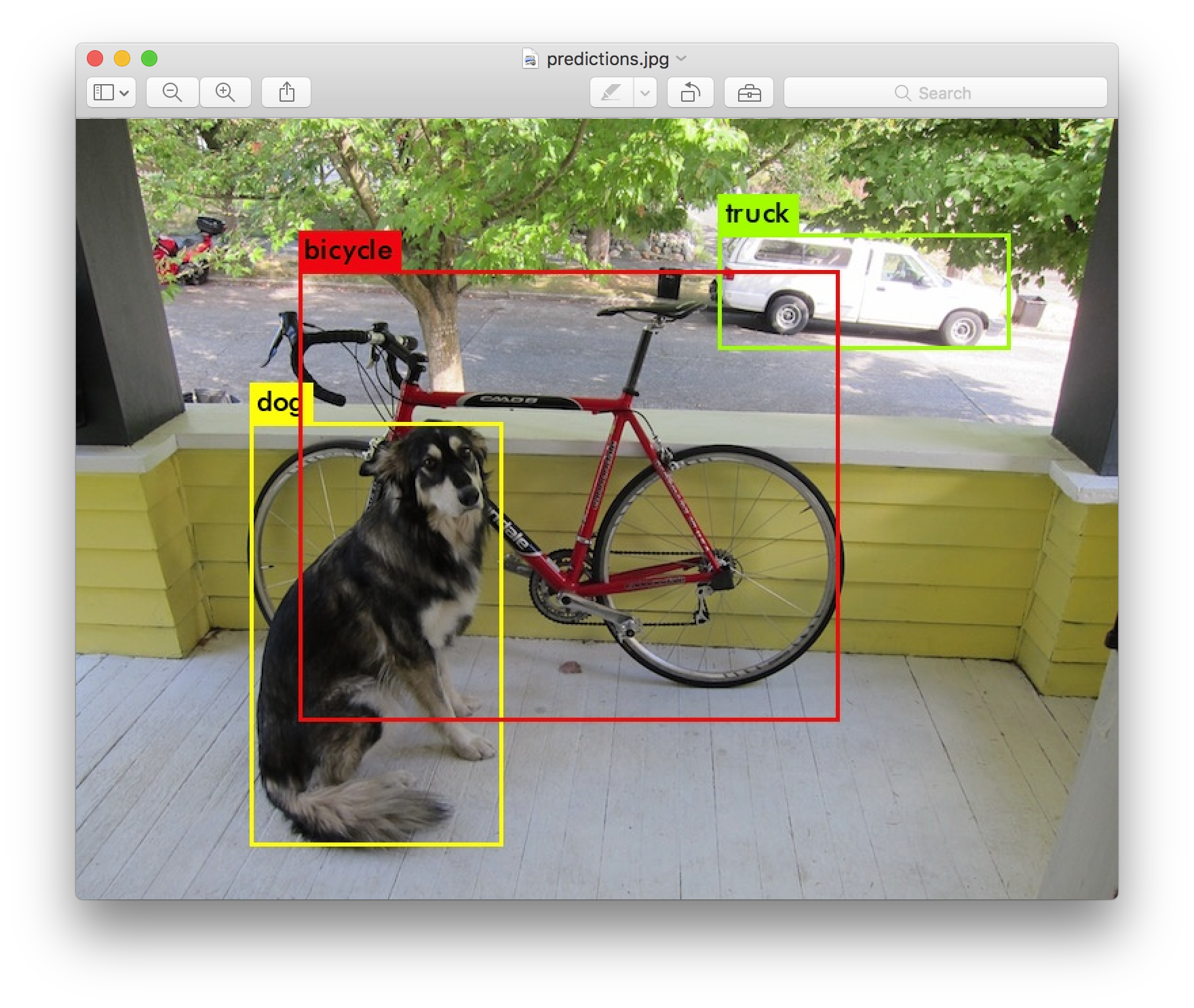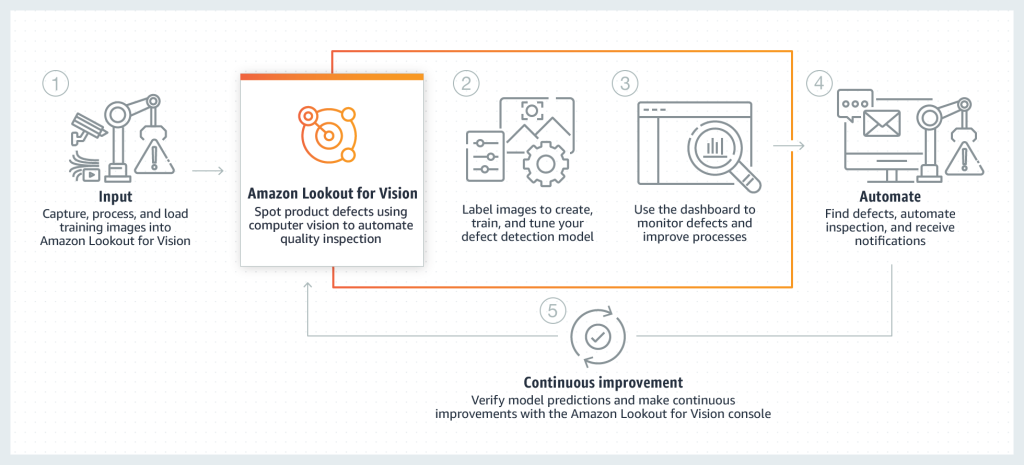
The Top 8 AI ML Tools
By, Amy S
- 6 Apr, 2022
- 770 Views
- 0 Comment
Our consultants are trained in using the following libraries and methodologies in approaching AI ML challenges. Some of these tools are open source, and some are commercial libraries (where you pay for each transaction through API calls made). These services are typically called “cloud based vs edge computing”, where all the processing is done on a device without pushing anything to the cloud. Here are the top 8 AI ML tools in 2022:
Top 8 AI ML Tools in 2022
#8 – OpenCV
OpenCV is a library of programming functions mainly aimed at real-time computer vision. The library is cross-platform and free for use under the open-source Apache 2 License.
#7 – Yolo
Yolo stands for: You only look once (YOLO) which is a state-of-the-art, real-time object detection system. It is capable of processing images at 30 FPS. YOLOv3 is extremely fast and accurate. They apply a single neural network to the full image. This network divides the image into regions and predicts bounding boxes and probabilities for each region. These bounding boxes are weighted by the predicted probabilities.
#6 – Amazon Lookout
Amazon Lookout for Vision is a machine learning (ML) service that spots anomalies in images so manufacturing companies can detect defects at scale. You can use Amazon Lookout for Vision to identify missing components in products, damage to vehicles or structures, irregularities in production lines, minuscule defects in silicon wafers, and other similar problems. It uses machine learning (ML) to see and understand images from any camera as a person would, but with an even higher degree of accuracy and at a much larger scale. Lookout for Vision allows customers to eliminate the need for costly and inconsistent manual inspection, while improving quality control, defect and damage assessment, and compliance.

#5 – Amazon Rekognition
Amazon Rekognition allows you to add image or video analysis to your applications. Amazon Rekognition API can identify objects, people, text, scenes, and activities. It can detect any inappropriate content as well. Amazon Rekognition also provides highly accurate facial analysis, face comparison, and face search capabilities. You can detect, analyze, and compare faces for a wide variety of use cases, including user verification, cataloging, people counting, and public safety.
#4 – AWS Deeplens
AWS Deeplens is a fully programmable video camera and comes with pre-trained models designed to expand deep learning skills. The hardware allows developers to run any deep-learning framework, including TensorFlow and Caffe. AWS DeepLens comes preinstalled with a high performance, efficient and optimized inference engine for deep learning using Apache MXNet. AWS DeepLens integrates with Amazon Rekognition for advanced image analysis, Amazon SageMaker for training models and with Amazon Polly to create speech-enabled projects.
#3 – AWS Kinesis
AWS Kinesis enables the collection, processing, and analysis of real-time, streaming data so you can get timely insights and react quickly to new information. Amazon Kinesis offers key capabilities to cost-effectively process streaming data at any scale, along with the flexibility to choose the tools that best suit the requirements of your application. With Amazon Kinesis, you can ingest real-time data such as video, audio, application logs, website clickstreams, and IoT telemetry data for machine learning, analytics, and other applications. Amazon Kinesis enables you to process and analyze data as it arrives, and respond instantly instead of having to wait until all your data is collected before the processing can begin.
#2 – Google Cloud Vision AI
Google Cloud Vision AI is a google powered set of tools for image and video processing and analysis. They work both on the cloud or through edge computing, meaning the data doesn’t need to be uploaded for analysis. Detect emotion, understand text, and more. Use machine learning to understand your images with industry-leading prediction accuracy. Train machine learning models that classify images by your custom labels using AutoML Vision. Detect objects and faces, read handwriting, and build valuable image metadata with Vision API.
There are two APIs offered under this service: AutoML Vision. It automates the training of your own custom machine learning models. Simply upload images and train custom image models with AutoML Vision’s easy-to-use graphical interface; optimize your models for accuracy, latency, and size; and export them to your application in the cloud or to an array of devices at the edge. Vision API. Vision API offers powerful pre-trained machine learning models through REST and RPC APIs. Assign labels to images and quickly classify them into millions of predefined categories. Detect objects and faces, read printed and handwritten text, and build valuable metadata into your image catalog.
#1 – AWS Sagemaker
AWS Sagemaker – Build, train, and deploy machine learning (ML) models for any use case with fully managed infrastructure, tools, and workflows. Benefits include: make ML more accessible; enable more people to innovate with ML through a choice of tools—integrated development environments for data scientists and no-code visual interfaces for business analysts; Prepare data at scale; Access, label, and process large amounts of structured data (tabular data) and unstructured data (photos, video, and audio) for ML.
Benefits of AI ML
- Accelerate ML development – Reduce training time from hours to minutes with optimized infrastructure. Boost team productivity up to 10 times with purpose-built tools.
- Streamline the ML lifecycle – Automate and standardize MLOps practices across your organization to build, train, deploy, and manage models at scale.
- Make ML more accessible – Enable more people to innovate with ML through a choice of tools—integrated development environments for data scientists and no-code visual interfaces for business analysts.
- Prepare data at scale – Access, label, and process large amounts of structured data (tabular data) and unstructured data (photos, video, and audio) for ML.
- Accelerate ML development – Reduce training time from hours to minutes with optimized infrastructure. Boost team productivity up to 10 times with purpose-built tools.
- Streamline the ML lifecycle – Automate and standardize MLOps practices across your organization to build, train, deploy, and manage models at scale.
- AI ML platforms include AWS Lex, Amazon Comprehend, Amazon Textract,Amazon Transcribe,GCP Cloud Natural Language, Docker, Kubernetes, Streamlit, Matillion, Snowflake, Amazon Athena, Google Data Studio, Fast.ai, Neo4j, Google Cloud Dataflow, AWS Glue, Hevodata, Pentaho, Talend, Singer, Informatica, Stitch, SPARQL, GCP Vertex AI, GCP Recommendations AI, GCP IoT Core, AWS IoT Analytics, AI for Embedded systems, ELK (primarily Logstash), Airflow
Bring AI ML to Your Business
“Visionary companies will carve out new strategic options for themselves – those that don’t will fail.” – Jeff Bezos
By 2025 the Artificial Intelligence Market is projected to be valued at $390B. Now is the time to make the investments into artificial intelligence which you’ve always considered. Don’t be left behind! Reach out to our dedicated team today, and let’s turn your vision into a reality.
Recent Posts
Category
- Android (10)
- Artificial Intelligence (42)
- Blockchain (2)
- Cyber Security (2)
- Cybersecurity (6)
- Digital Transformation (41)
- Industry News (13)
- Infographics (10)
- iOS (2)
- Mobile App Development (81)
- Software (1)
- Uncategorized (3)
- Web development (11)
- Workflow Automation (3)
All Tag
Archives
- July 2025
- June 2025
- May 2025
- April 2025
- March 2025
- February 2025
- January 2025
- October 2024
- September 2024
- July 2024
- June 2024
- May 2024
- April 2024
- February 2024
- January 2024
- December 2023
- November 2023
- October 2023
- September 2023
- July 2023
- June 2023
- May 2023
- March 2023
- December 2022
- November 2022
- October 2022
- April 2022
- March 2021
- February 2021
- January 2021
- December 2020
- November 2020
- October 2020
- September 2020
- August 2020
- July 2020
- June 2020

